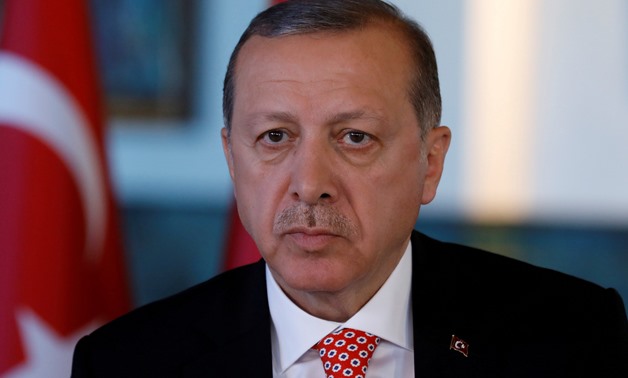
Turkish President Tayyip Erdogan - File Photo
ISTANBUL/ANKARA - 22 July 2017: Turkish President Tayyip Erdogan heads to the Gulf this weekend in an attempt to patch up the rift between Qatar and its neighbours, but the firm Qatari ally may find himself with little room to manoeuvre as a mediator.
Saudi Arabia, the United Arab Emirates, Bahrain and Egypt cut ties and imposed sanctions on Qatar last month, accusing it of supporting terrorism. Doha denies the charges.
In what has become the region's worst diplomatic crisis in years, the neighbours have since issued more than a dozen demands, telling Qatar to close down Al Jazeera television, curb relations with Iran and shutter a Turkish military base.
Erdogan has said the demands are unlawful and has called for an end to the crisis, citing the need for Muslim solidarity and strong trade ties in the region.
"We will work until the end for the solution of the dispute between the brotherly nations of the region," he said in comments after prayers on Friday. "Political problems are temporary, whereas economic ties are permanent, and I expect the investors from Gulf countries to choose long-term ties."
While looking to defend Doha, Erdogan is also wary of alienating its neighbours. He will visit Saudi Arabia, Kuwait and Qatar during the two-day trip that starts on Sunday.
The UAE was Turkey's seventh-largest export market last year, worth $5.4 billion, while Saudi Arabia was No. 11 and Egypt was No. 13, according to official data. Turkey also wants to sell defence equipment to the Saudis.
"This visit, in a way, would help to demonstrate that despite its positioning as a firm backer of Doha, Turkey still has the ability to dialogue with the other countries at the highest level, primarily Saudi Arabia," said Sinan Ulgen, a former Turkish diplomat and an analyst at Carnegie Europe.
Nonetheless, Ankara is negotiating from a "handicapped position", given its vocal support for Qatar, he said.
"In terms of how much Ankara can accomplish and how effective the potential mediation role that Turkey could undertake, the expectations are quite low in that regard."
STRATEGIC IMPORTANCE
The dispute has so far proven intractable and Erdogan has said Saudi Arabia should solve the crisis.
U.S. Secretary of State Rex Tillerson shuttled between Gulf countries last week but left without any firm signs the feud would be resolved soon. On Friday, Tillerson said he was satisfied with Qatar's efforts to implement an agreement to combat terrorist financing, and urged Arab states to lift the "land blockade".
Qatar, while not a major trade partner for Turkey, holds strategic importance not least because of the military base established by Ankara after a 2014 agreement. Turkey says as many as 1,000 soldiers could eventually be stationed there.
There are also ideological ties.
Qatar's neighbours have demanded it end support for groups such as the Muslim Brotherhood, seen by Gulf countries as a threat to their dynastic rule. Erdogan, whose roots are in political Islam, backed a Muslim Brotherhood government in Egypt before it was overthrown in 2013.
"There has been diplomatic traffic before this visit. There have been high-level talks," a Turkish official told Reuters, speaking on condition of anonymity. "There is a climate in which some concrete steps can be taken."
On Friday, Qatar's emir called for dialogue to resolve the crisis, saying that any talks most respect national sovereignty. In his first speech since the ties were severed, a defiant Sheikh Tamim bin Hamad al-Thani described his country as facing an unjust "siege".
That is a sentiment that Erdogan firmly shares.
"Qatar is being hard done by," the Turkish official said. "It is important for the whole region to eliminate this injustice."

Comments
Leave a Comment